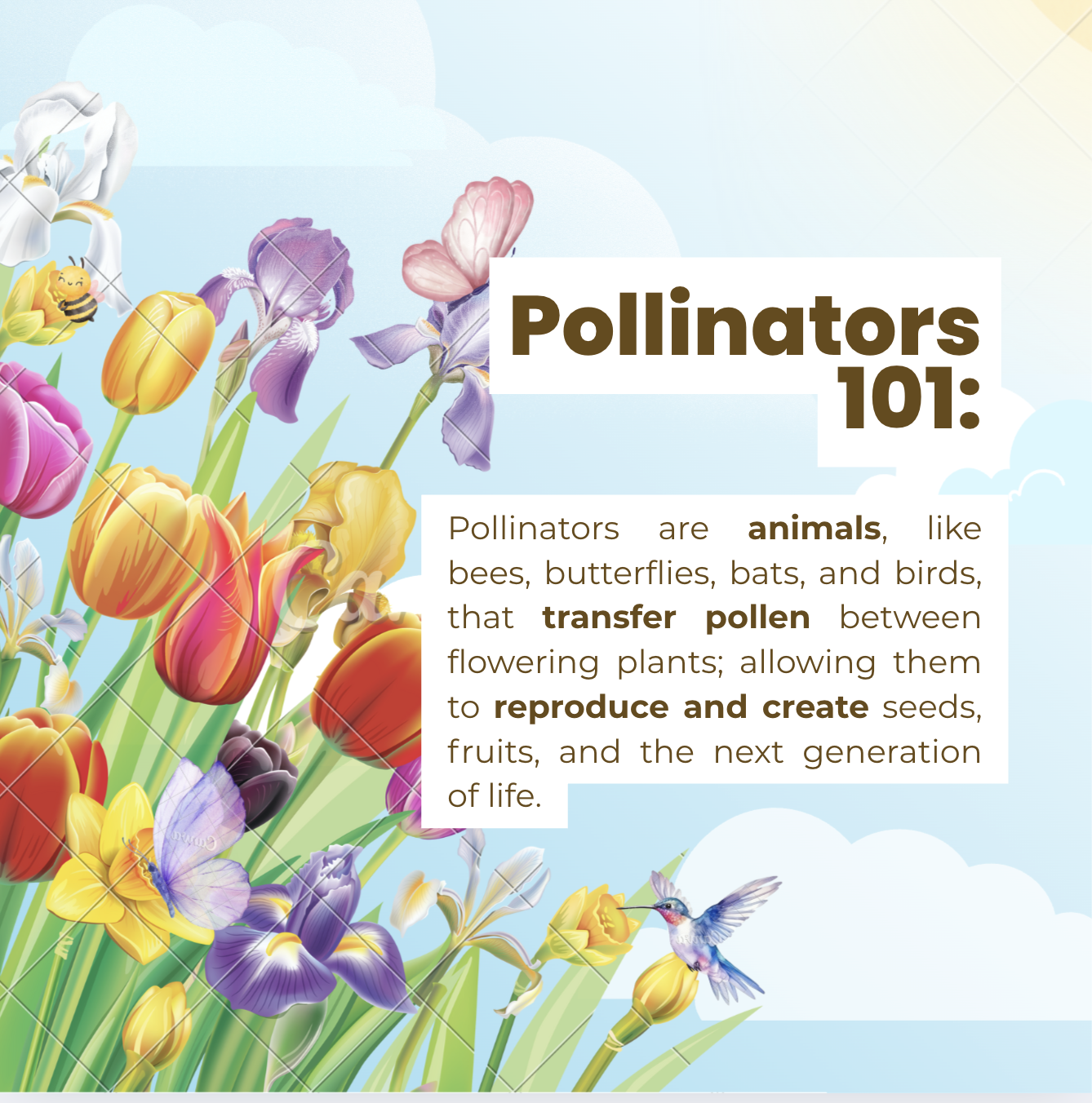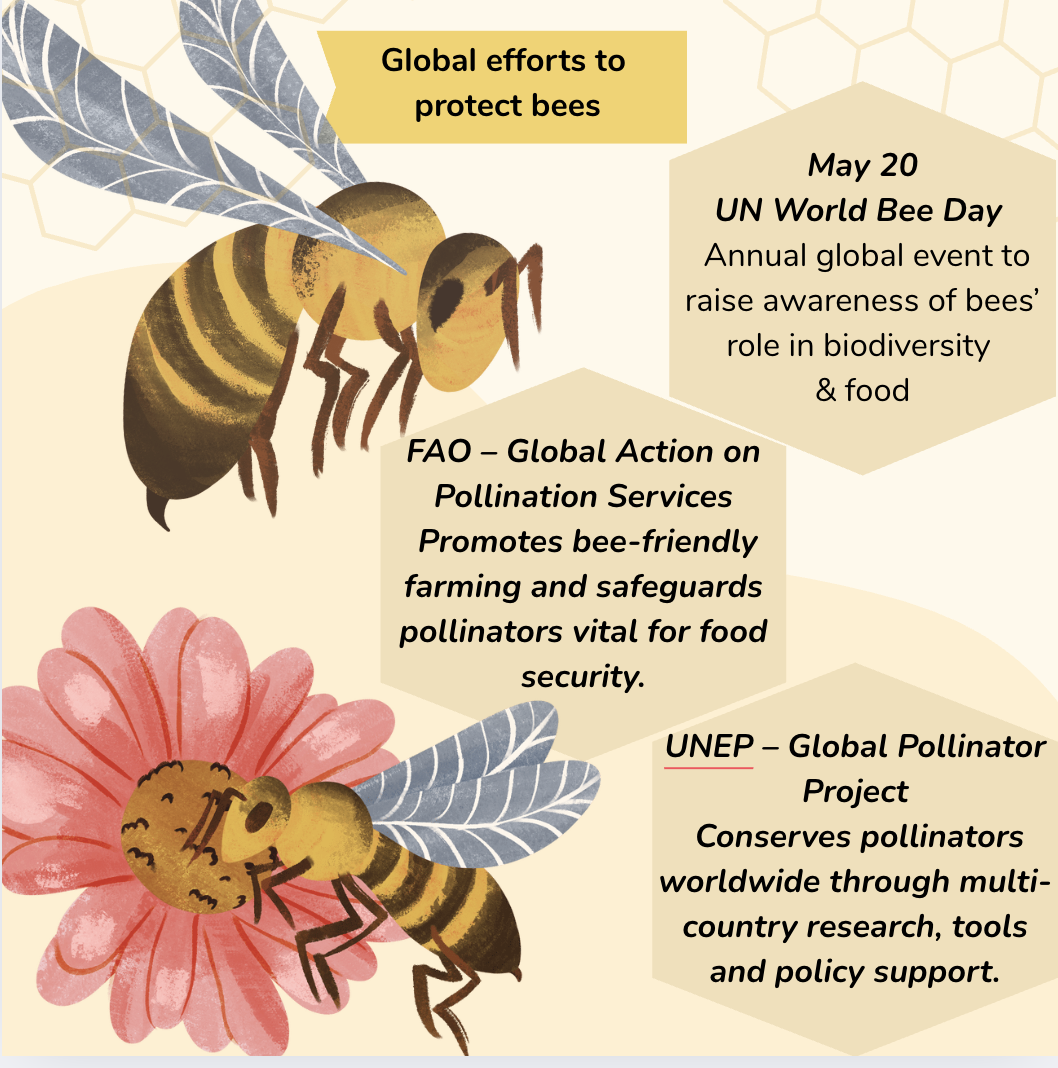Ch 23: Pollinator Power
Protecting Bees and Biodiversity
Written and designed by volunteers: Payton H., Tiara J., Maryem K., Taniskha., D Divinia J.
Why Pollinators Matter
Stop and look around your garden. Whether it's a buzzing bee, a flitting butterfly, a tiny fly, or even a nocturnal bat, every visitor is a hero.
Why do pollinators matter?
They are the essential workers of our food system. Pollinators are animals, including bees, butterflies, bats, and birds, that transfer pollen between flowering plants. This crucial step allows plants to reproduce, giving us a bountiful harvest of fruits, vegetables, and seeds! In fact, roughly 1 out of every 3 bites of food you take exists because of their work! They help over 80% of the world's plants reproduce, which in turn provides shelter, food, and stability for countless other animal species.
How Small Actions Can Help
We can all join the fight to strengthen biodiversity by planting native, nectar-rich flowers across seasons, refusing synthetic pesticides, installing clean bee hotels or preserving bare soil for nesting, and backing local beekeepers and conservation initiatives. When communities unite in such gentle acts, we nurture healthier ecosystems, resilient pollinator populations, and a brighter future for nature and humanity alike.
Community & Global Efforts to Protect Pollinators
Pollinators are essential for biodiversity, food security and healthy ecosystems. Global initiatives are taking action: UNEP leads research and policy support, FAO promotes bee-friendly farming, UNESCO’s Women for Bees trains and empowers women beekeepers and UN World Bee Day on May 20 raises awareness worldwide. You can help by planting pollinator-friendly plants, avoiding harmful pesticides, supporting sustainable farming, and spreading knowledge to protect bees and ensure a thriving natural world.



